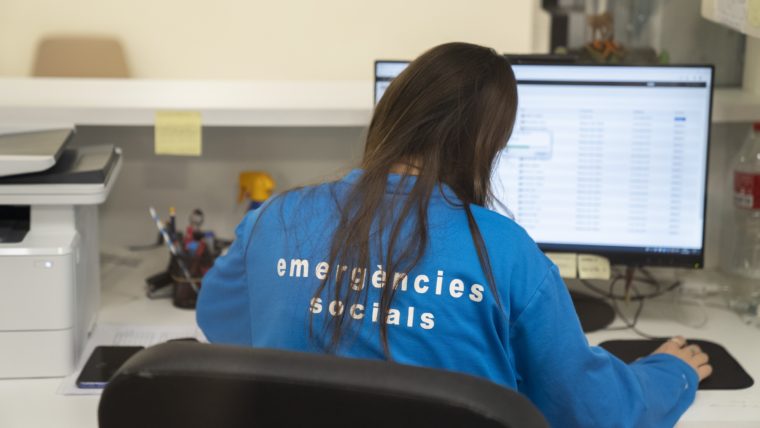Municipal services attend to 12,000 refugees from Ukraine
Most of the support provided (7,700 people in just twelve weeks) was from the UCRANE, the new social emergency facility opened in April to concentrate support for the Ukrainian community. Help was also provided for people to get onto the city’s register of residents, with 1,740 new additions.
The UCRANE has so far provided services for 3,280 families, nearly 700 of them receiving financial benefits with the Barcelona Solidarity card, for an overall sum of 147,000 euros. Before the UCRANE was set up, the city’s social services had to adapt to attend to those arriving in Barcelona and fleeing the invasion of Ukraine. The Care Service for Immigrants, Emigrants and Refugees (SAIER) helped 2,300 people and the Barcelona Social Emergency and Urgent Care Centre (CUESB) helped 2,000.
Out of the 1,740 new additions to the city register, 916 correspond to women, 300 to men and 524 to minors. The three districts with the highest numbers are Sant Martí (with 352), L’Eixample (287) and Sarrià – Sant Gervasi (221). These are also the districts where schooling has been provided for most of the 584 new students arriving from Ukraine, according to data from the Barcelona Education Consortium. In all, 153 minors have been registered in infant schooling, 295 in primary and 136 in secondary.
Data from the Ministry of the Interior show that 14.5% of residency permits awarded to the Ukrainian population were issued in Barcelona, even though the population in the city compared to the whole of the Spanish state is under 4%.
Alliances between municipal services, organisations and citizens
Besides its social emergency and urgent care operations, the City Council has started various initiatives in collaboration with other organisations to facilitate reception and integration in the city from a cross-cutting perspective.
Municipal services have coordinated a stage zero reception process with the Red Cross and are also running a care point inside Fira de Barcelona, at one of the arrival centres organised by the Spanish state. Public transport tickets have been issued in collaboration with TMB.
An office has also been set up at Barcelona Activa to help with the labour insertion of refugees from Ukraine. During the first week it opened, the office attended to 62 people, 10 of them men and 52 women.
In terms of mental healthcare for newly arrived people from Ukraine, an emotional support programme has been started in collaboration with the Psychologists’ Association of Catalonia.
A number of free recreational activities have also been created, particularly for people between the ages of 4 and 18 from families staying in hotel accommodation, with 730 refugees taking part through six social organisations: the Fundació Adsis, the Fundació Centre Educatiu i de Lleure (CEL), the Fundació Pere Tarrés, the Fundació Servei Solidari, Intress and Salesians Sant Jordi.
Municipal bodies such as B:SM, the Tibidabo Amusement Park, the Barcelona Institute of Sports and the ICUB have taken part by providing tickets, as have other organisations such as CosmoCaixa and the Museu del Barça.
Access to these activities will be maintained in the summer through two programmes. Firstly, through additional places on the programme ‘A l’estiu, Barcelona t’acull’, which this year has upped the number of places from 140 to 240 for Ukrainian youngsters aged 4 to 18, and secondly for minors between the ages of 5 and 13, who will have access to the summer activity programme organised by the Institute of Municipal Social Services (IMSS).
Barcelona citizens have also created various solidarity initiatives to help people arriving from Ukraine. The City Council has brought these activities together on the website ciutatrefugi.barcelona, where practical information is also published in Ukrainian thanks to the collaboration of translators provided by the Catalan Social Volunteer Federation.











